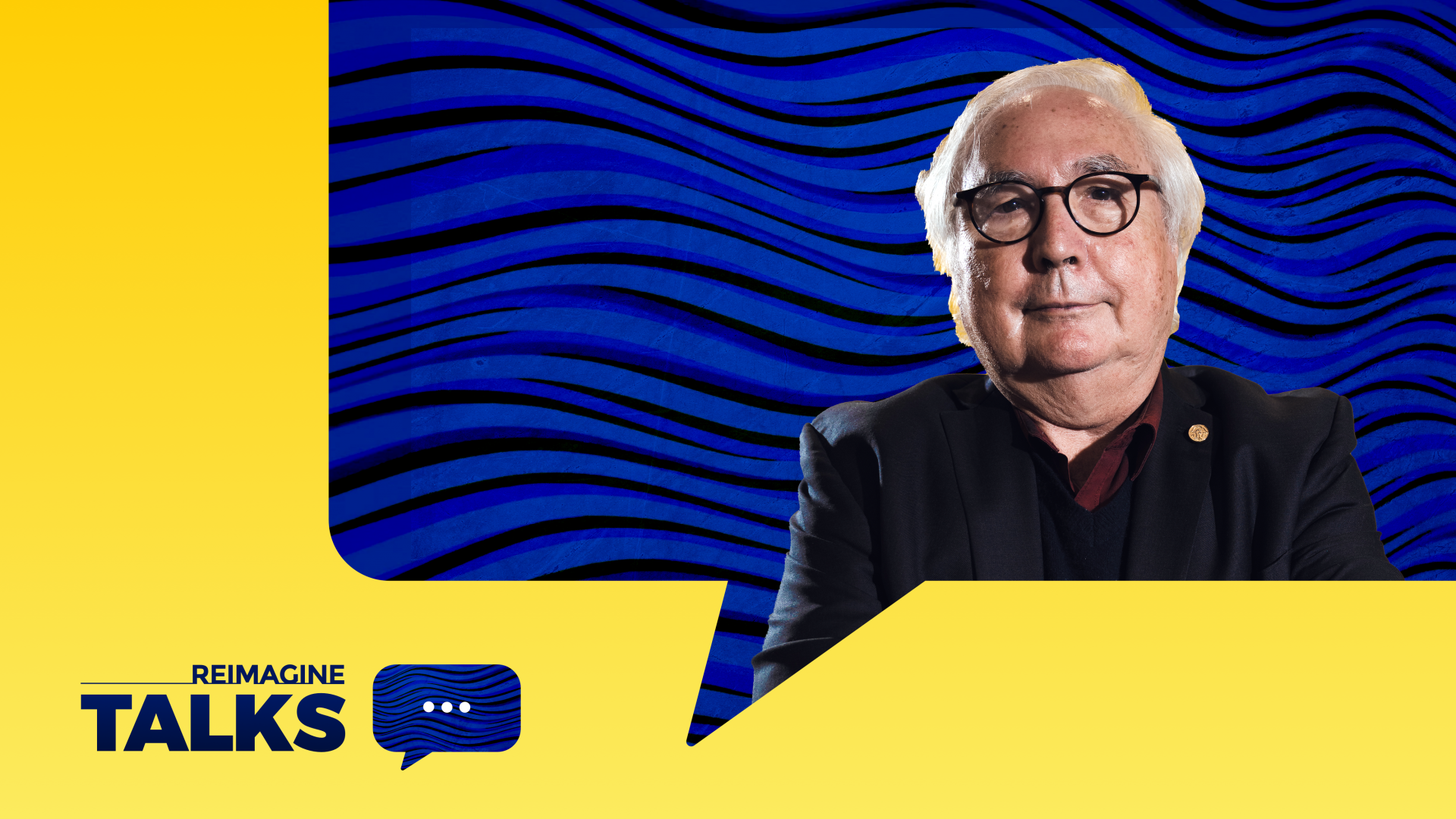Professor Manuel Castells has been the forerunner of almost any sociological study about network society. He published many books that shaped our understanding of how the political dynamics evolved in the transition between the age of the mass media and the network society. Interviewed in the second episode of the new video podcast ReImagine Talks, the prominent Spanish sociologist looks deeper into the relationship between power and citizens in a digital society and try to answer a key question: could Internet and the social network help us to reimagine power?
Professor Castells’ definition of power is as sharp as a razor: “Power is the capacity of some humans to compel or influence the behaviour of other humans, so they behave according to the interests and values of the power holders. Throughout human history, power is what I’d call the DNA of society”. During the interview, he adds, “We are free, yes. We are free within the conditions which those in power consider acceptable or not acceptable”.
In this interview, the author of “Rupture: the crisis of liberal democracy” (2018) and the famous “Information Age” trilogy (“The Rise of the Network Society”, 1996, “The Power of Identity”, 1997, and “End of Millennium”, 1998), explores the crisis of liberal democracy and how digital technology and social media changed our relationship with power and the institutions administrating it. “We welcomed the advent of the internet as a technology of freedom, and it is a technology of freedom. We just forgot that freedom doesn’t mean good!” he says in one of the most provocative interview passages. “Companies are interested in more and more traffic, and that’s why polarization helps them”, he adds. According to Professor Castells, social media is not the cause but acts as a catalyst of social and political tension and unrest, fostering a growing lack of trust in all democratic institutions. “Social media, rather than being an electronic agora, is a battlefield between different projects, ideas and manipulations”, argues the sociologist.
Moved by emotions more than by policies
According to Professor Castells, citizens often react more to emotions than they do to policies: “Neuroscience has demonstrated that we are emotional animals. It is our emotions, our feelings, that determine our behaviour”. “One of the key mistakes of liberal democracies is to think that rational policies, better policies in rational terms, will convince people. Not at all”. “If they are strong emotions, the fact that you have a good economic policy, that you control the debt or the traffic in the cities is not going to change the fundamental basis. The essential is how to trigger positive emotions instead of negative emotions. And that is not about policymaking, it is about communication making”.
Castells considers that “the real problem is that, in the political systems, there has been very little capacity to translate the energy generated in social movements into new policies and into the possibility to legitimise the institutions”. Despite this disturbing outlook, the professor continues to see the future with optimism: new social and cultural trends “may coalesce at some point and provoke new social movements that will develop new forms of decentralised democracy”. “In creative chaos situations, things that appear impossible become possible and people find new opening windows into the future”.
ReImagine Power is the second chapter of ReImagine TALKS, a series of video podcasts launched by the think tank Re-Imagine Europa together with leading European media partners. The series feature some of the most innovative, influential and original thinkers of our time to explore key concepts that define how we understand the world we live in, challenging conventional thinking and reimagining the concept with unexpected and contemporary lens.
The series is hosted by Erika Stäel von Holstein and Luca de Biase; RIE’s Chief Executive and Research Director, respectively; after the first episode, ReImagine Capitalism with Harvard Business School’s Professor Rebecca Henderson, over the coming months, they will present conversations about how to Reimagine Trust with the Internet pioneer and thinker Lisa Gansky, and Reimagine Ethics with the expert on Ethics and Technology Professor Jeroen van den Hoven, among others.
You can watch and/or download the series at:

![]()
![]()







